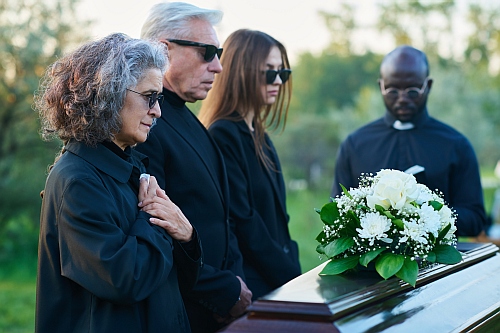Although falling from a horse is not among the sources of injury one would typically contemplate if he or she were asked to consider Atlanta-area personal injury litigation, the facts of a recent federal case, Brit UW Limited v. Hallister Property Development, LLC, are unlike those associated with most personal injury actions.
Brit is actually the second lawsuit filed regarding the incident at hand. The first case followed an accident at Goat Farm, a living and workspace community for artists located in Atlanta, where the plaintiff in the first suit, a resident on the property, was paralyzed after being thrown from a horse. The defendant in the original suit is a limited liability corporation that purchased the property in 2008. The corporation is composed of two members who hoped to eventually develop the land into large-scale residential and commercial space. However, at the time of the accident, the majority of the land was underdeveloped and served as a site for both animals and small residential studios and working spaces for artists. One of the two members of the corporation actively manages the property and agreed to have a friend store a horse on Goat Farm. On the day of the horse’s arrival, the property manager and the horse’s owner agreed to let the plaintiff sit on a horse and helped him mount the animal. Although the plaintiff did not expect to ride, the horse jolted after he was mounted and threw the plaintiff into a flagpole, leading to back injuries and paralysis. Following the accident, the plaintiff brought suit in Fulton County State Court, arguing various theories of premises liability and negligence that made the Goat Farm owners liable for his serious injuries. The defendant then requested defense and immunity from its insurance provider, the plaintiff in the second lawsuit. The insurance provider and the defendants reached an impasse in negotiations about obligations pursuant to the insurance agreement, and the insurance provider brought a declaratory action suit against both the defendant and the plaintiff in the original lawsuit in federal court to determine what rights existed under the insurance contract.
Following limited necessary discovery, the insurance provider moved for summary judgment, arguing that the injury was not covered by the terms of the contract, and, even if it was, the members of the corporation failed to provide reasonable notice as required by the insurance agreement. Under Georgia law, an insurance agreement is interpreted using the same rules that apply in standard contract interpretation. SawHorse, Inc. v. S. Guar. Ins. Co. of Georgia, 269 Ga. App. 493, 494-95 (2004). Accordingly, the parties to an insurance agreement are bound by the agreement’s plain and unambiguous terms, but ambiguities are construed against the insurance provider since it is the drafter of the contract. Id. at 494. With respect to this case, two issues needed to be resolved: whether the insurer had a duty to defend the insured in this action, and whether the insured gave timely notice of the action as required by the agreement.
With respect to the first issue, the court noted that an insurer has a duty to defend if the complaint of an action asserts a claim that is potentially covered by the policy, and only if the terms of the agreement unambiguously foreclose coverage will the duty to defend not exist. Auto-Owners Ins. Co. v. State Farm Fire & Cas. Co., 297 Ga. App. 751, 754 (2009). Looking to the contract, the court found that it unequivocally excluded coverage for the type of injury sustained by the plaintiff in the original case, since coverage under the agreement was limited to contracting and subcontracting activities in connection with the construction of dwellings on the Goat Farm property, not the maintenance and controlled social and recreational activities at Goat Farm. With respect to the second issue, the court noted that the terms of the agreement required that the insured provide notice to the insurer “as soon as practicable of an ‘occurrence’ or an offense which may result in a claim.” In the instant case, the insured did not provide notice until it received the complaint, which was nearly two years following the accident. While the term “as soon as practicable” is not definitive by any stretch, it is generally recognized under Georgia law that a two-year delay in providing notice is an “unreasonable delay as matter of law,” unless the insurer can provide a reasonable excuse for the delay. Lankford v. State Farm Mut. Auto. Ins. Co., 307 Ga. App. 12, 15 (2010). Although the insured argued that it did not anticipate that it would be liable for the injuries in this case, the court noted that this was not a reasonable excuse because the notice provision requires notice for occurrences that may result in a claim and that one of the insured was present at the time of the accident.
Although resolution of the insurer’s liability in this matter does not shield the Goat Farm’s owners from legal accountability, the absence of insurance coverage often makes obtaining full recovery a more difficult proposition. As this case demonstrates, personal injury and premises liability suits often involve more than just proving the negligence that gave rise to injury. Instead, these cases often involve subsidiary issues, including those related to insurance coverage, that require the advice of competent counsel. Accordingly, if you have recently been injured and are considering bringing a personal liability or premises liability suit, you should obtain the advice of experienced counsel. The Atlanta personal injury attorneys at the Law Office of Terrence R. Bethune have substantial experience in both Georgia personal injury and premises liability litigation and are prepared to offer you guidance in your possible suit. Feel free to contact us for a free case consultation.
Subject Related Articles

What to Do After a Hit-and-Run Accident
So you’ve just been in a hit-and-run accident. Your first thought is probably to chase down the other driver, but that may not be the
April 19, 2024

Difference Between a Wrongful Death Claim and an Estate Claim
So you’ve recently lost a loved one, and you’re not sure of the differences between a wrongful death claim and an estate claim. Don’t worry,
March 22, 2024

Elderly Driver Accidents in Macon: What to Do
Macon, Georgia, like many communities across the United States, faces a growing population of senior citizens. While this demographic shift brings undeniable benefits, it also
February 22, 2024





